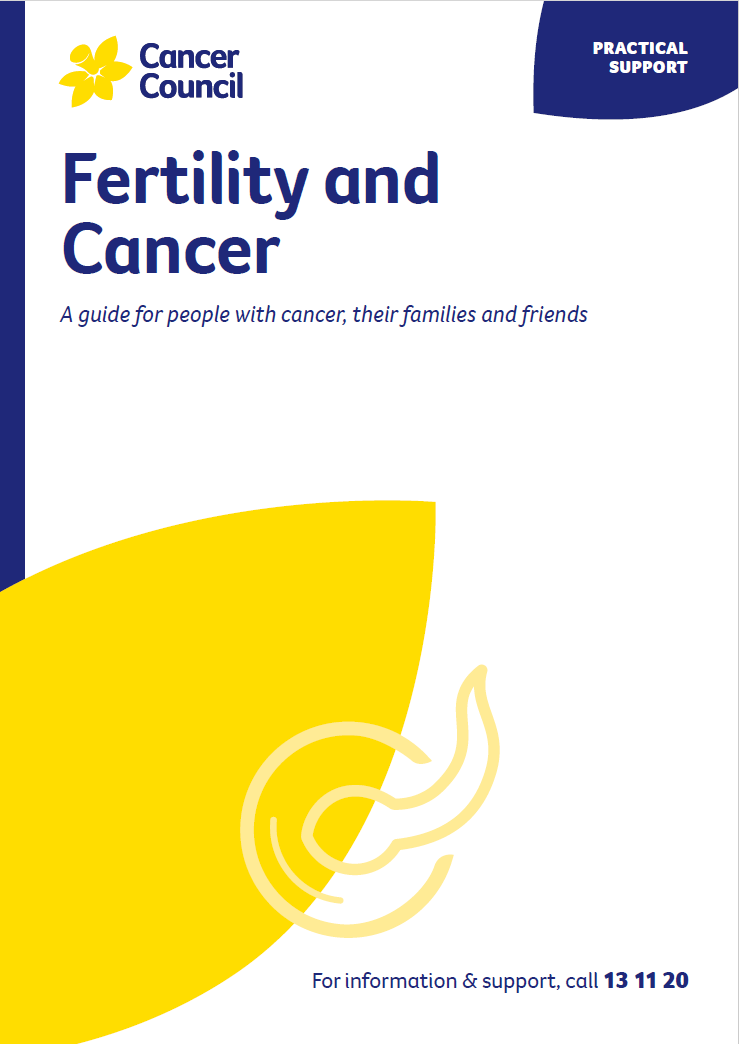- Home
- About Cancer
- Managing side effects
- Fertility and cancer
- Relationships and your sex life
Relationships and your sex life
Learn about relationships and your sex life following a cancer diagnosis. Understand the importance of discussing fertility with your partner.
Learn more about:
- Overview
- Communicating with your partner
- Communicating with a new partner
- Sex and intimacy
- If you’re a young adult
Overview
A cancer diagnosis, treatment side effects and living with the uncertainty of infertility may affect how you feel about yourself, your relationships and your sense of who you are and how you see yourself.
Whether or not you have a partner, it’s a good idea to find out your fertility status as soon as you feel ready (see checking fertility after treatment for females and males). This way, you can think about what you want, and if you have a partner, start talking with them about what the future may hold.
Communicating with your partner
A cancer diagnosis, infertility and changes to your sex life can cause tension in a relationship. Some partners are very supportive, while others avoid talking about it.
If your partner is unwilling to talk about fertility, you might feel like you’re coping alone or making all the decisions. It can also be challenging if you and your partner disagree about what to do and focus on different outcomes.
Your partner will also experience a range of emotions, which may include helplessness, frustration, fear, anger and sadness.
Seeing a fertility counsellor can help you talk about these issues and develop strategies to manage conflict.
Communicating with a new partner
If you are in a new relationship, you may be worried about your partner’s reaction to your diagnosis or to explaining any fertility concerns.
Start the conversation when you feel ready. It may be easier if you practise what you want to say – and how you would respond to questions your partner may ask – with a friend, family member or health professional.
Sex and intimacy
Sexuality is about who you are, how you see yourself, how you express yourself sexually and your sexual feelings for others. Being able to conceive a child may be part of your identity, and infertility may change how you feel about yourself.
You may feel that sex is linked with the stress of infertility, and you may lose interest in intimacy and sex (low libido).
Body image
Fertility concerns may affect how you feel about your body (body image). You may feel that your body has “let you down”. It will take time to accept any physical and emotional changes. It may be helpful to:
- look after your body with exercise, eating well and sleep
- spend time with a partner doing something you both enjoy.
Resuming sexual activity after cancer treatment
Some cancer treatments may cause physical problems, such as pain during penetrative sex or trouble getting and keeping an erection.
These problems may be difficult for you and your partner, if you have one, but can be managed in various ways:
- think about what used to get you sexually aroused and explore if it still does
- explore different erogenous zones, mutual masturbation, oral sex, personal lubricants, sex toys, erotic images and stories
- focus on getting in the mood and making foreplay enjoyable to take the pressure off getting pregnant
- talk to each other about how fertility concerns are affecting you and discuss ways you can keep enjoying sex (e.g. “I just want to cuddle now” or “That feels good”).
If you need further support, talk to a counsellor or sex therapist. Your doctor can refer you to one or you can call Cancer Council 13 11 20.
Learn more about sexuality, intimacy and cancer and listen to the podcast below.
→ READ MORE: Helpful websites on fertility and cancer
Podcast: Sex and Cancer
Listen to more of our podcast for people affected by cancer
More resources
Dr Sally Reid, Gynaecologist and Fertility Specialist, Obstetrics and Gynaecology (Adelaide) and Royal Adelaide Hospital, SA; Dr Sarah Ellis, Clinical Psychologist and Postdoctoral Research Fellow, Kids Cancer Centre, Sydney Children’s Hospital and UNSW, NSW; John Booth, Consumer; Hope Finlen, Haematology Nurse Consultant, Gold Coast University Hospital, QLD; Dr Michelle Harrison, Medical Oncologist – Gynaecological cancers, Chris O’Brien Lifehouse, NSW; Melissa Jones, Nurse Consultant, Youth Cancer Service SA/NT, Royal Adelaide Hospital, SA; Dr Violet Kieu, Clinical Director, Melbourne IVF and Fertility Specialist, The Royal Women’s Hospital, VIC; Prof Declan Murphy, Consultant Urologist, Director – Genitourinary Oncology, Peter MacCallum Cancer Centre and The University of Melbourne, VIC; Stephen Page, Family and Fertility Lawyer, and Legal Practice Director, Page Provan, QLD; Ann Retzlaff, 13 11 20 Consultant, Cancer Council WA; A/Prof Kate Stern AO, Fertility specialist, Gynaecologist and Reproductive Endocrinologist, Royal Women’s Hospital and Melbourne IVF, VIC; Georgia Webster, Consumer.
View the Cancer Council NSW editorial policy.
View all publications or call 13 11 20 for free printed copies.

